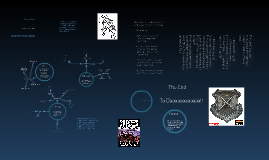

today, the term has come to mean more than one thing. Other translators need to deepen their awareness of the nuances of words in the source text so that terms can be expressed appropriately, faithfully, and respectfully in the target language.įor instance, how would you translate the term woke? As it’s used in the U.S. Most translators who are women, who identify as LGBTQ+, or who come from communities of color are already sensitive to how words are used-both positively and negatively-in relation to their own experiences. Identity plays a particularly crucial role today in translating texts that deal with or include vocabulary related to race, women’s issues, or LGBTQ+ persons. The way in which we render words in a target language is affected by our histories, perspectives, and biases, whether we’re aware of them or not. We come to our work with assumptions and biases embedded in the cultures of our families and communities beyond what we may realize. We bring a lifetime of experiences along with attitudes that were formed in childhood and beyond. As we go about the work of translation, we bring far more than the skills we’ve learned. Can a translator render a faithful rendition without being deeply in touch with the poet’s worldview? More importantly, isn’t it possible for translators who don’t personally have to deal with racism or discrimination on a daily basis to inadvertently insert personal beliefs or ideologies in their choice of vocabulary or in the way they express certain concepts?ĭoes identity play a role in how we translate? The short answer is yes. Yet the poem emerges from experiences of racial inequality and marginalization that underlie every line. One might view Amanda Gorman’s poem as a simple text without any difficult vocabulary or concepts that would make translation challenging. As I read it, I was pretty shocked to encounter an instance in which the English word straight (as in heterosexual) was rendered in the target language as “normal or natural man/woman.” Aside from taking offense at the suggestion that as a gay man I was somehow not normal or natural, I found myself asking if a translator who identified as LGBTQ+ (lesbian, gay, bisexual, transgender, queer/questioning, and others) would ever render the word straight in this way.

2Īround the same time this translation controversy was hitting the press, I came across the translation of a document aimed at educating readers on issues of diversity. 1 The story continued to generate interest the following year when a Hungarian Roma translator recounted how belonging to a marginalized community gave her deeper insight as she translated Gorman’s poem into Hungarian. Similar criticisms were voiced in other countries where translations were being undertaken, while some voices decried the role of “identity politics” in the selection of translators. After the task of translating the poem had been assigned to a White Dutch translator, there was a backlash from those who argued that a person of color should do the translation. President Joe Biden by the young African American poet Amanda Gorman.

In early 2021, a debate erupted in several European countries about who was qualified to translate “The Hill We Climb,” a stirring poem delivered at the inauguration of U.S. (Note: The views expressed in this article are those of the author only and do not necessarily reflect U.S. Does identity play a role in how we translate? The short answer is yes.


 0 kommentar(er)
0 kommentar(er)
